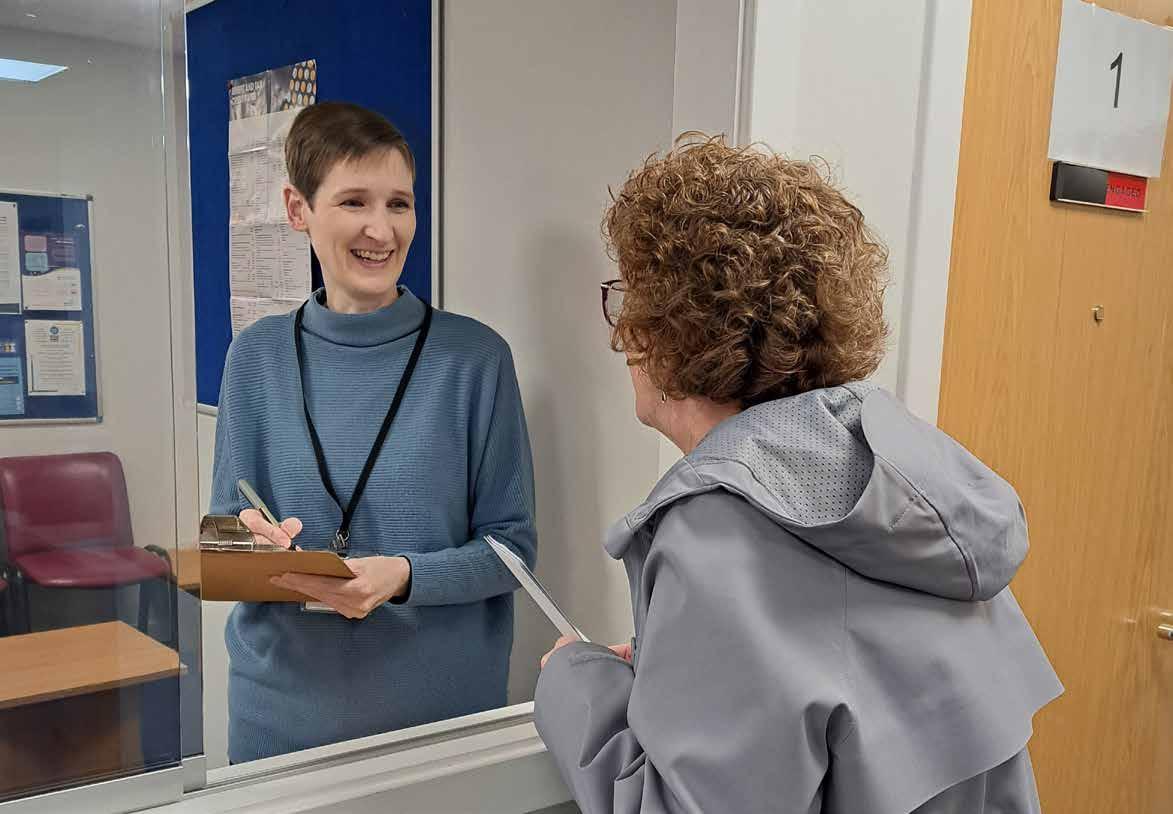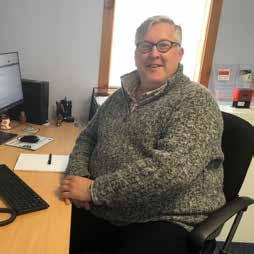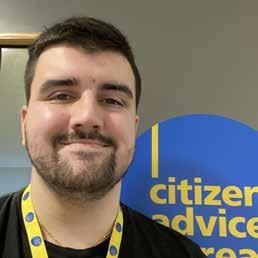
2 minute read
At the client coalface
It’s an important role – and arguably the toughest in the bureau. Is triage part of the solution to the network’s capacity issue?
As client demand soars, the role of triage has become ever more central to many bureaux as they strive to keep the lid on waiting times. By welcoming clients, resolving simpler queries, recording data and funnelling enquiries to the right specialist, triage staff can take some of the heat off hard-pressed bureaux. But the role hasn’t always had support to match its potential importance. It’s also deployed differently across Scotland. Variously, admin staff, volunteers, generalist advisers and even session supervisors are charged with triage.
Advertisement
Now some bureaux are taking a closer look at the potential of a task that has sometimes been undersold.
Gateway
adviser
Aberdeen CAB introduced what it then called a gateway adviser role in 2019. The idea came from staff at a team building event, as manager Kristi Kelly told this autumn’s network conference.

“Waiting times were a growing problem. The choice was either moving away from dropin to more appointments, or introducing triage,” says Kristi.
A dedicated waiting-room was set aside. Triage was initially taken on by volunteers, though it proved hard to find people to take on these shifts: “Some loved it, but others preferred to stay with advising.”
The pandemic called a halt to the exercise. On reopening, Aberdeen decided to switch triage to a paid role.
The role of recording A year on, the bureau is still striving to perfect triage and maximise its effect on the service. So far, the numbers have shown no sign of budging. “I’m convinced it is having an impact, but the client waiting period hasn’t yet changed,” Kristi says.
She believes more thorough reporting via CASTLE might hold the key to demonstrating the value of triage. As she points out, while the network has seen a 6 to 7% rise in clients recently, the number of advice codes logged has not risen to match.
Discussion in the COCABS group, COCABS group, which is made up of CAB Chief Officers, involving other bureaux wrestling with the issue, suggests variations in recording practice. “It’s understandable that you might decide not to record data for someone who, for example, just wanted to return a faulty kettle – but it’s essential, not least for funding purposes,” Kristi points out.

Properly equipped
The training offered to triage staff and volunteers can vary, depending on the depth of the service they’re expected to provide. But Citizens Advice Edinburgh has recently strengthened its triage training, acknowledging the demands of the job.

“It was probably our hardest role,” says Benjamin Napier, CEO. “You’re right at the frontline, dealing with clients at their most stressed – and you might not be able to provide them with help immediately.”
Edinburgh now equips all triage operators by putting them through the first half of the Adviser Training Programme, covering all the diagnostics and information-gathering modules.
The work goes on, but defining and equipping this frontline role could ultimately hold the key to a more resilient network in challenging times.
Reimagining our service
Triage is only one element of a complex service that needs to reshape itself to handle the rising number of enquiries.
The network is now teaming up with academics to come up with fresh ideas. It has established a two-year Knowledge Transfer Partnership with service design experts at the University of Edinburgh.
“The aim is to solve problems and develop new ways of working – turning academic research into practical settings,” explains Jane Adams, CEO at Perth CAB. "Any bureaux can take part to work through any service design issue they may have."





